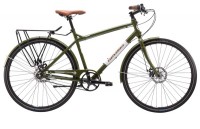Categories
- Additional Insured
- ChildrensProducts
- Claims Made
- Cyber Insurance
- Dietary Supplements and Nutraceuticals
- Ecigarettes
- Firearms Insurance
- Food Products
- Foreign Products Liability
- Foreseeable Misuse
- Frivolous Lawsuits
- General Liability
- Industrial
- Infographics
- Intellectual Property
- Looking ahead
- Marijuana Liability
- Medical Products
- Mutual Indemnification
- Nano Technology
- News
- Online Sellers Insurance Requirements
- Outsourcing
- Piercing The Corporate Veil
- Pollution Liability
- Product liability
- Product Recall
- Retail Chain Store
- Start-Up Business
- Statute of Repose
- Surplus Lines Insurance
- Technology
State-to-State Variability of Product Liability Laws

When a retailer can be sued as a manufacturer
I often hear different business tell me of their belief that, as a product distributor, they have less liability than the manufacturer. The truth is that this is correct in most states. However, in some states, such as Washington, a retailer can be sued as the manufacturer. This is the case when the retailer’s trade name is on products made by third-party or contract manufacturers. This is often referred to as private labeling.
A case in point
A good of example of this is the Johnson v Recreational Equipment, Inc (REI) product liability lawsuit. In this case, REI sold bikes under the trade name Novara. However, the bikes were made by a third-party manufacturer, Aprebic Industry Company, Ltd. In this case, the plaintiff, Johnson, alleged a front fork on a Novara bike failed.
Under Washington’s product liability law, a retailer is liable for product liability claims if the the product is sold under the retailer’s name. What is unusual in this case is the manufacturer was not named in the lawsuit and REI was treated as the sole responsible party. The plaintiff’s expert witness proved the bike forks to be defective and the approximate cause of the injury.
The takeaway
I want to emphasize just how much state product liability laws can vary from state to state. In most states, the manufacturer would have been named in the lawsuit with the retailer. Furthermore, he may have ultimately been found to be solely responsible for a manufacturing defect or had to share responsibility with the retailer.
However, in Washington they put the burden on the retailer. This is to exert pressure on the manufacture to enhance the safety of the retailer’s name-brand products. Also, the retailer has the option of later suing the manufacturer to recover their losses. But that remedy can often take years to resolve and does little to lessen the negative impact on the retailer’s insurance premiums.
Practical Risk Management Steps Every Distributor Can Take to Protect Their Business
- Make sure every supplier has Product Liability Insurance.
- Make sure your company is added as an additional insured on the supplier’s Product Liability policy. This will make the supplier’s policy primary and your policy secondary.
- Use an Indemnification Agreement that outlines each party’s responsibility in the contract between you and the supplier. In this instance, if REI was simply branding an existing bike designed and manufactured by Aprebic, the manufacturer should have been responsible for all claims. However, if REI designed the bike, then REI would have been responsible for design and, possibly, instruction and warning defect. Aprebic would have been responsible for all manufacturing defects.
Source: James Moss, recreational-law.com
-
 Click the Button Below to Get Your
Click the Button Below to Get Your
No-Obligation Quotes from Among the
Top 18 Leading Insurance Carriers Today -
Recent Industry News
- Amazon Sellers and Vendors Strategy Including Insurance Requirements
- Walmart Sellers Insurance
- Product Liability Limit Requirements of Online Sellers
- State-by-State Product Liability Analysis of Laws Impacting Businesses
- Children’s Product Liability: Strange Claims and Need for Insurance
- Product Liability vs. Environmental Insurance for the Chemical Industry
- Product Liability in the 3D Printing Industry: New Materials and Their Significance
- Product Liability Concerns in Agricultural Equipment Enhanced with Artificial Intelligence
- Navigate Product Liability in Battery and Solar Industry
- Cyber Risk Insurance Is Essential Business Insurance in Today’s Modern World
Monthly News Archives
